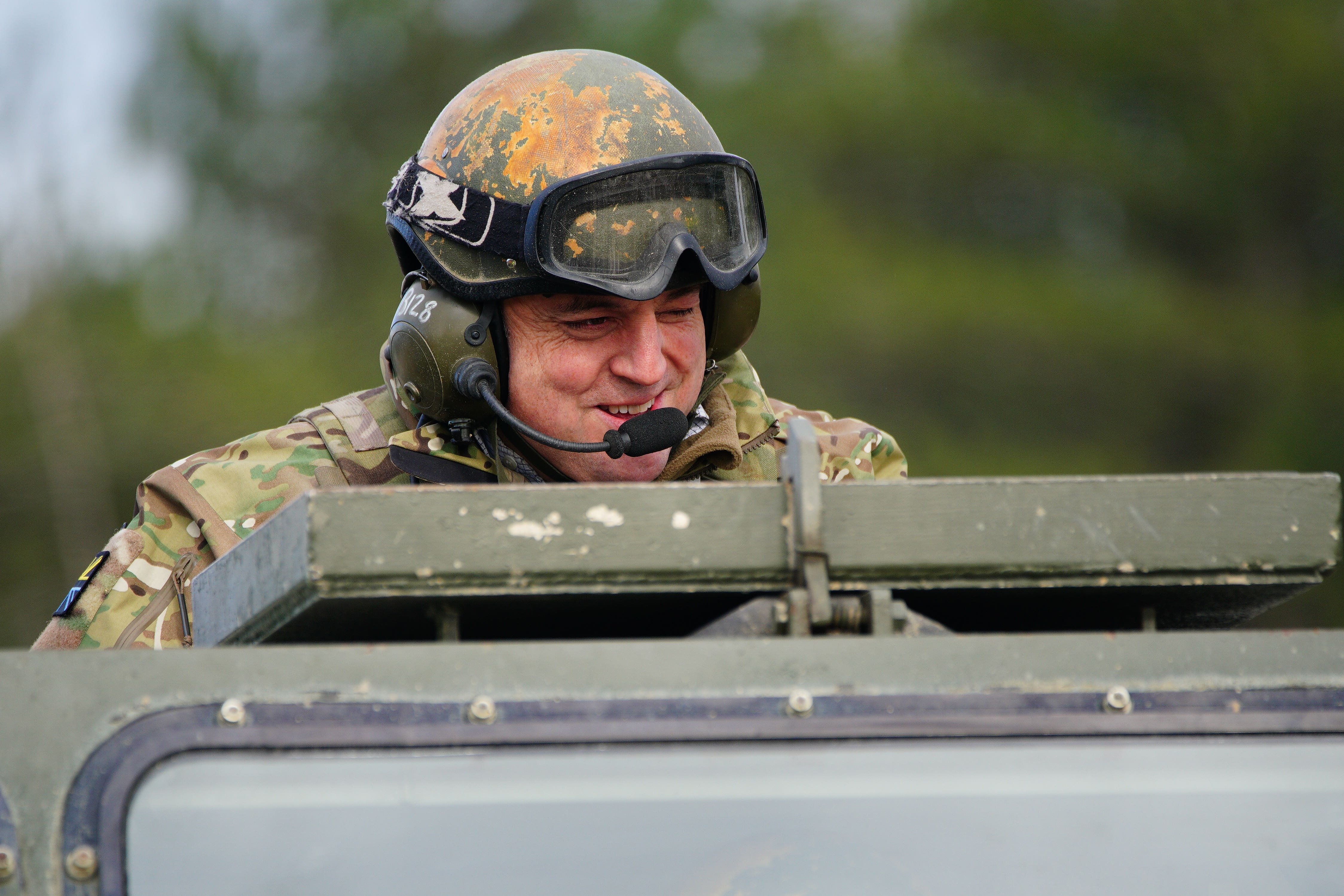Defence Secretary ‘pretty confident’ about receiving Budget boost
Ben Wallace has lobbied for extra funding to deal with inflationary pressures and the cost of backing Ukraine in the fight against Russia.

Your support helps us to tell the story
From reproductive rights to climate change to Big Tech, The Independent is on the ground when the story is developing. Whether it's investigating the financials of Elon Musk's pro-Trump PAC or producing our latest documentary, 'The A Word', which shines a light on the American women fighting for reproductive rights, we know how important it is to parse out the facts from the messaging.
At such a critical moment in US history, we need reporters on the ground. Your donation allows us to keep sending journalists to speak to both sides of the story.
The Independent is trusted by Americans across the entire political spectrum. And unlike many other quality news outlets, we choose not to lock Americans out of our reporting and analysis with paywalls. We believe quality journalism should be available to everyone, paid for by those who can afford it.
Your support makes all the difference.Defence Secretary Ben Wallace has said he is “pretty confident” his department will be given the investment boost it requires in next week’s Budget to carry out army upgrades.
The Cabinet minister has lobbied Chancellor Jeremy Hunt in public for extra cash for the Ministry of Defence (MoD) to help deal with inflationary pressures and the costs of backing Ukraine in its battle against Russia’s invading forces.
Mr Wallace reportedly wanted up to £11 billion extra over the next two years but, according to The Times, Mr Hunt has agreed a rise of closer to £4-5 billion as part of his Budget package.
The former Scots Guard, asked at Conservative Home’s defence and security conference on Monday whether he was confident he would receive the investment the armed forces required, said: “I’m pretty confident, yes.”
Putin invaded Ukraine and that changed some of those middle-of-the-decade timetables that we were prepared to take a risk in
As well as dealing with inflation, which stands at about 10% according to some metrics, the senior Conservative minister said Russia’s attack on Ukraine had changed the timetable for when military investment would be required.
He said £24 billion of armed forces funding, announced by Prime Minister Rishi Sunak in 2020 when he was chancellor, was designed to plug “historical black holes” but also kick-start the process of updating British Army equipment that was “desperately in need of replacement”.
Stating that some Army upgrades were 15 years overdue, Mr Wallace continued: “We were prepared to take some risks in the timeframes of bringing in new capability.
“Then, of course, (Russian president Vladimir) Putin invades Ukraine and that changes some of those middle-of-the-decade timetables that we were prepared to take a risk in.
“The negotiations I’m involved in are about how I can bring some equipment forward in order to mitigate those risks.”
He repeated his assertion that the British Army had been “hollowed out” over a 30-year period by successive governments of every colour.
Mr Wallace also called for the UK to move to a 10-year budget framework for defence to provide long-term stability and avoid waste when it comes to military procurement.
In his opening remarks to the conference, Mr Wallace spelt out how he felt the global security picture was changing and warned of the world becoming “more insecure, more unstable and more anxious for the next decade or two”.
Touching upon the UK’s support for Ukraine, he added: “We must invest for the future and learn the lessons of what we are seeing on the battlefield to make sure we are match-fit come whatever happens next.
“And I think there will be a next — and we just have to make sure we are there and ready.”
He suggested, in light of increased threats, ministers would have to consider sending a “clear signal” to the public, the Treasury and other departments that defence was likely to need a “greater share than it traditionally has done” at the next spending review.
Mr Wallace added: “That’s the real battle to come, and I’m not sure I’ll be here in two years.”
An update to the Government’s integrated review of foreign and defence policy is expected to be produced before the March 15 Budget, which will give an indication of the new pressures the military will be under and the funding needed to meet them.
The refresh was ordered by then prime minister Liz Truss, following the Russian invasion of Ukraine and with pressure from some in the Tory party to take a tougher line on China.
Downing Street said Mr Sunak wanted to “do everything necessary to protect our people” when asked about speculation of an uplift in funding for the MoD.
The Prime Minister’s official spokesman said: “Obviously, it’s not for me to set out departmental funding or get into speculation on that ahead of a fiscal event.
“So the Prime Minister has been clear, we will do everything necessary to protect our people, that’s why the armed forces have had significant investment.
“And as the Defence Secretary set out, defence spending turned a corner in 2020, thanks to the Spending Review, which provides an uplift for the Ministry of Defence for £24 billion over four years.
“But in terms of future spending, I will leave that for others to set out.”
Mr Wallace said he would be in Japan when the Budget is announced on March 15, rather than on the Government front bench in the Commons, as he is signing a deal with Japanese and Italian counterparts related to the next generation of fighter aircraft.